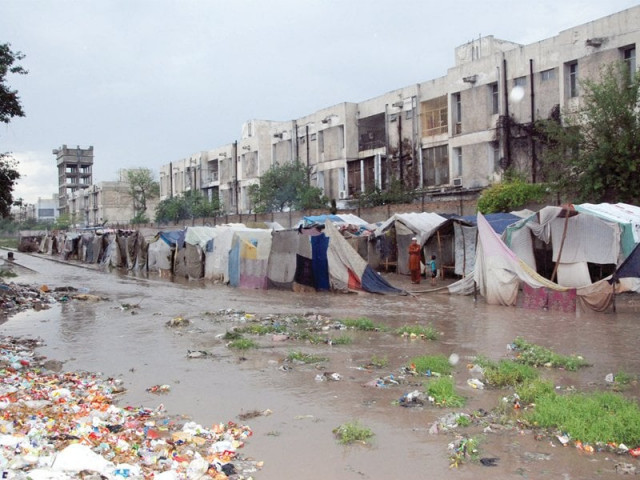Waterborne diseases
Waterborne disease rated the most serious issue in our health sector; claims tens of thousands of lives each year.

Steps must be taken to provide a safe source of drinking water. PHOTO: SAMEER RAZZIQ
The problem is not an isolated one. From Tharparkar, reports speak of serious diseases afflicting entire villages because of an excess of fluoride in limited supplies; a virtual epidemic of gastroenteritis is being reported from Lahore and in Karachi, there is concern whether sufficient chlorine is being added to water supplies. We should also note that international agencies have warned the country could face a devastating scarcity of water resources due to contaminated supplies over the coming years, putting lives at risk. This is an issue which must not be taken lightly. Many experts predict it could prove to be our gravest problem over the coming years. Indeed, waterborne disease is already rated as the most serious issue in our health sector, claiming tens of thousands of lives each year.
We need urgent measures. In the first place, steps must be taken to provide a safe source of drinking water to people across Pakistan and, particularly, those in regions where supplies of this essential commodity are limited. Sindh is a key example. Indeed, health crises caused by contaminated water are reported virtually each summer from the province. Right now, what we need to do is put remedies in place but even more crucially, ensure all those who are sick and suffering as a result of drinking unsafe water are offered the treatment they need. This must be the primary responsibility of authorities so people can be offered clean water to drink in their homes and in their workplaces.
Published in The Express Tribune, June 3rd, 2013.
Like Opinion & Editorial on Facebook, follow @ETOpEd on Twitter to receive all updates on all our daily pieces.















COMMENTS
Comments are moderated and generally will be posted if they are on-topic and not abusive.
For more information, please see our Comments FAQ